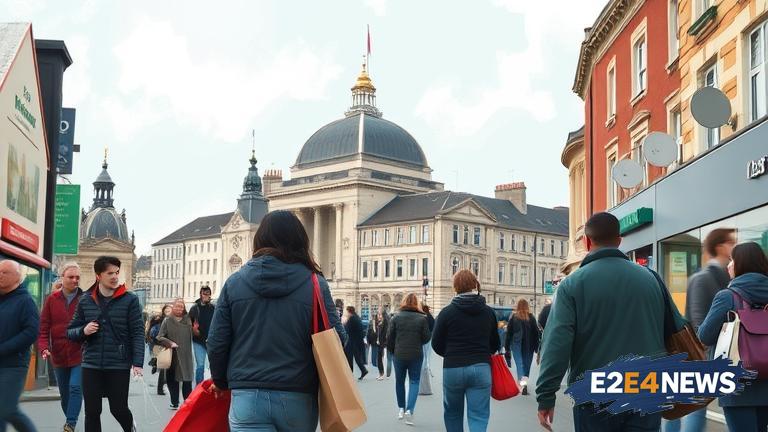The latest consumer confidence survey has revealed a slight improvement in Irish consumer sentiment, with a minor increase in August. This uptick suggests that consumers may be becoming more optimistic about their financial situations and the overall economy. Despite the increase, consumer confidence remains relatively low, indicating that many individuals are still cautious about their spending habits. The survey’s findings are based on a comprehensive analysis of consumer attitudes and behaviors, providing valuable insights into the current state of the Irish economy. The slight increase in consumer confidence may be attributed to various factors, including a stable labor market, low unemployment rates, and a gradual increase in wages. However, the survey also highlights concerns about the rising cost of living, inflation, and the potential impact of global economic uncertainty on the Irish economy. As the global economy continues to navigate challenges such as trade tensions and geopolitical instability, Irish consumers are likely to remain cautious in their spending habits. The survey’s results are consistent with other economic indicators, which suggest that the Irish economy is experiencing a period of slow growth. The minor increase in consumer confidence may be seen as a positive sign, but it is essential to note that the economy still faces significant challenges. The Irish government has implemented various measures to support economic growth, including investments in infrastructure and initiatives to promote entrepreneurship. Nevertheless, the survey’s findings emphasize the need for continued vigilance and proactive policies to address the ongoing economic uncertainty. The consumer confidence survey is a crucial tool for policymakers, businesses, and individuals, providing valuable insights into the attitudes and behaviors of Irish consumers. By analyzing the survey’s results, stakeholders can better understand the complexities of the Irish economy and make informed decisions about their investments, spending habits, and business strategies. The slight increase in consumer confidence may also have implications for the Irish retail sector, which has experienced significant challenges in recent years. As consumers become more optimistic about their financial situations, they may be more likely to increase their spending on non-essential items, potentially boosting sales for retailers. However, the survey’s findings also highlight the need for retailers to remain competitive and adaptable in a rapidly changing market. The Irish economy is heavily influenced by global economic trends, and the survey’s results must be considered in the context of international developments. The ongoing trade tensions between major economies, such as the United States and China, have significant implications for the Irish economy, which is heavily reliant on international trade. Furthermore, the survey’s findings emphasize the importance of addressing the rising cost of living, which remains a significant concern for many Irish consumers. The Irish government has implemented various measures to address this issue, including increases in the minimum wage and investments in affordable housing. Nevertheless, the survey’s results suggest that more needs to be done to support low- and middle-income households, who are disproportionately affected by the rising cost of living. In conclusion, the slight increase in Irish consumer confidence is a positive sign, but it is essential to recognize the ongoing challenges facing the economy. The survey’s findings highlight the need for continued vigilance, proactive policies, and a comprehensive understanding of the complexities of the Irish economy. By working together, stakeholders can promote economic growth, support businesses, and improve the living standards of Irish consumers.
